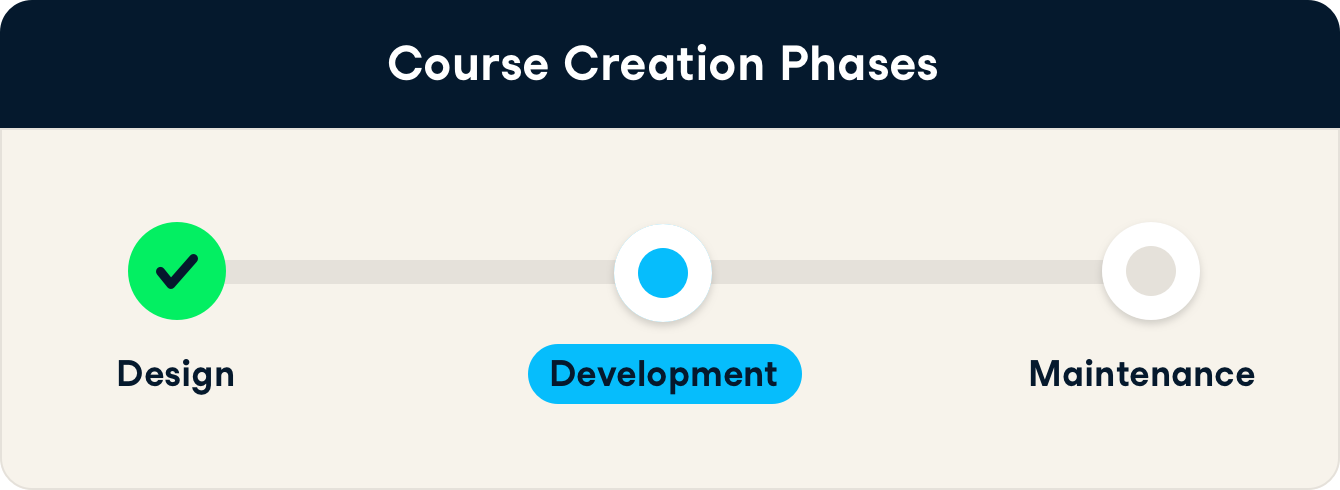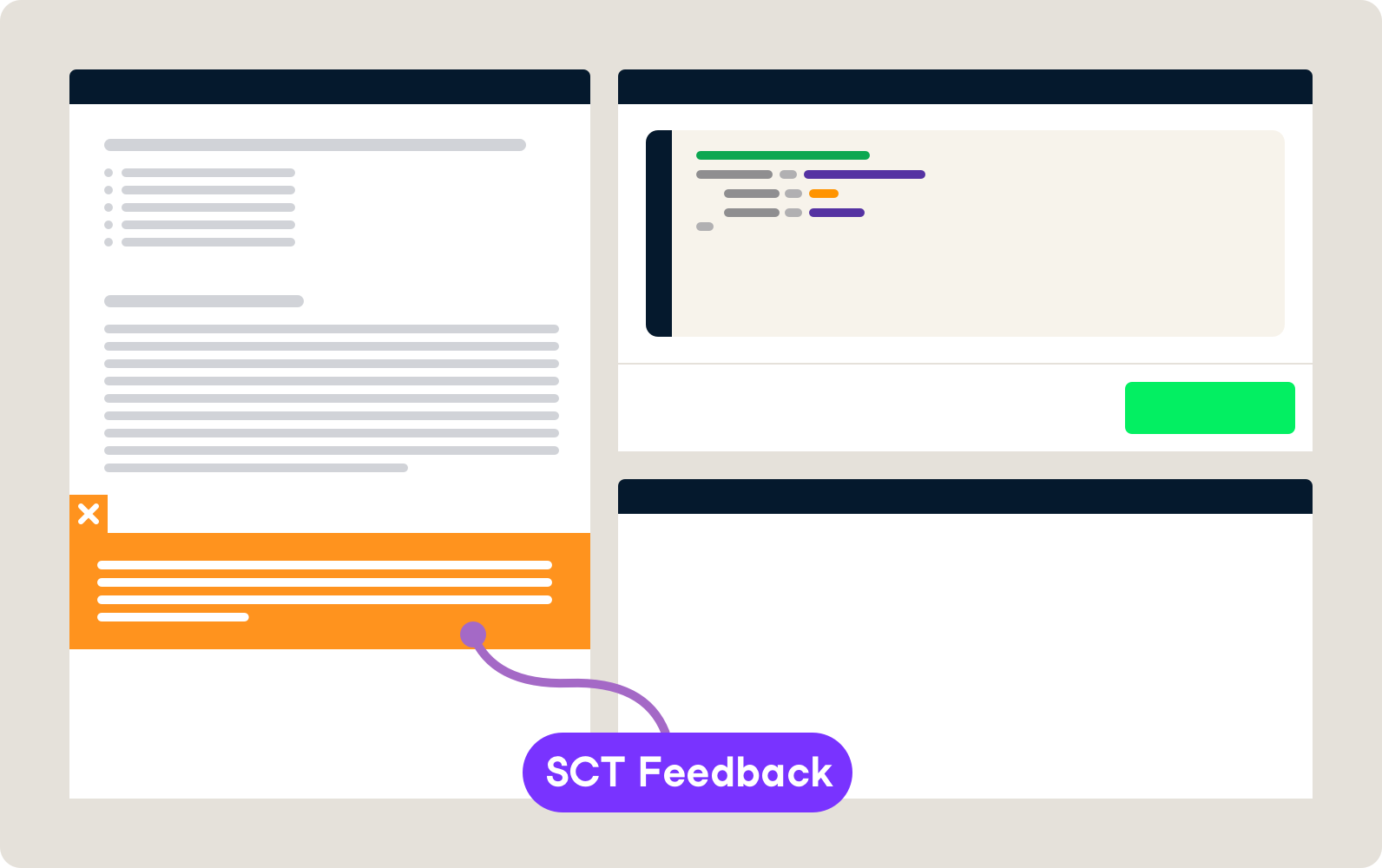Course Development
Course Creation at DataCamp

Kelsey McNeillie
Instructor Success Manager

Course development
- Who is a Content Developer?
- What does developing content mean?
- How can you take your course from handoff to launch?
- Let's find out!
This is your course
- You own the intellectual property
- You are the subject matter expert
- You will be creating all the content for your course
Instructor responsibilities
- Creating slides, scripts, and exercises
- Debugging code
- Fixing typos
- Formatting slides & exercises
- Resizing images
Instructor responsibilities
- Creating "production-ready" slides, scripts, and exercises
- Respecting DataCamp's content guidelines
- Creating audio recordings
CD responsibilities: Reviewing content
- Help ensure your course is of the highest possible quality
- Review your content and provide feedback
Course development timeline
- Dependent on your schedule
- How much time you can commit per week
- Follow timeline created at handoff
CD responsibilities: Project management

![]()
Adhering to the timeline
- Important to adhere to the timeline
- Ensures enough time for CD review
- Gives you enough time to implement CD feedback

CD responsibilities: Writing SCTs
ex() %>% check_correct(
check_object(., name = "sum_all") %>% check_equal(),
check_function(state = ., name = "pmap") %>% {
check_arg(state = ., arg = ".l") %>% check_equal()
check_arg(state = ., arg = ".f") %>% check_equal()
}
)
ex() %>% check_correct(
check_output_expr(., expr = "class(sum_all)"),
check_function(., "class") %>% check_arg("x") %>% check_equal()
)
success_msg("Congratulations! Now that we have seen the basics of iteration with `purrr`, let's
dive into programming.")
Deploying your course on DataCamp!

Summary
| Task | Responsibility |
|---|---|
| Creating content & responding to feedback | Instructor |
| Debugging & formatting code | Instructor |
| Formatting slides & resizing images | Instructor |
| Reviewing content | Content Developer |
| Project management | Content Developer |
| Writing SCTs & deploying your course | Content Developer |
Let's practice!
Course Creation at DataCamp

